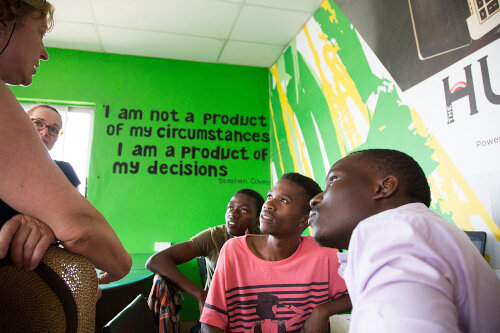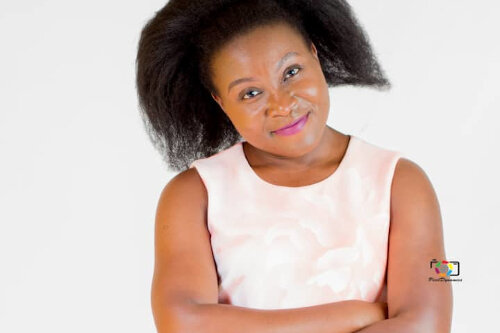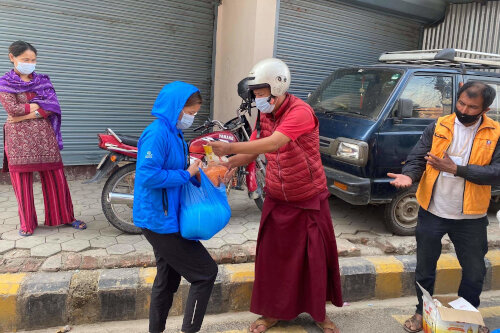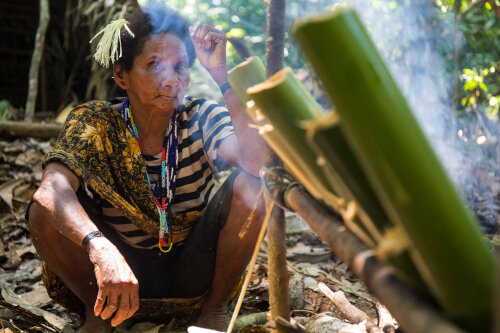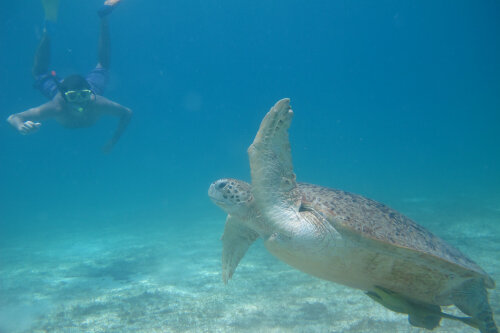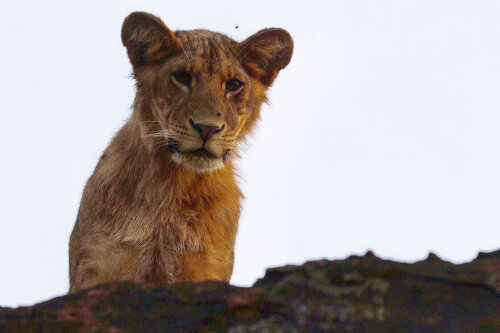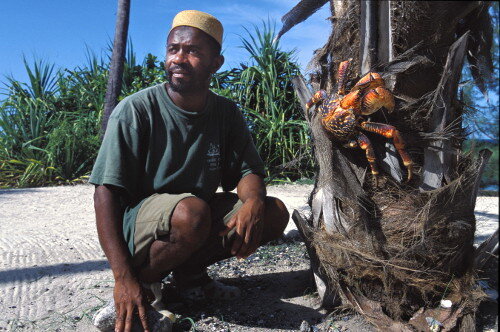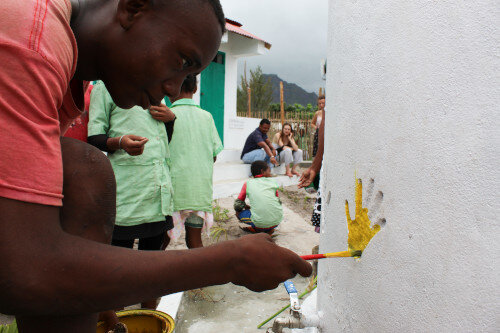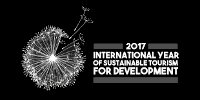Coronavirus Covid19 & Tourism: From Hospitality to Health
/Last updated 7th July 2020
The travel industry has been the first and hardest hit by the Covid19 coronavirus. Unfortunately, this isn’t just a matter of customers curtailing their leisure trips. For communities and conservation, the collapse of the travel sector can be a matter of life and death, such is the importance of tourism to livelihoods, supporting families, health, education and wildlife funding ordinarily, let alone additionally managing and mitigating Covid-19.
(What might happen to tourism after lockdown? Read ‘Travel after Coronavirus Lockdown? Finding the New Responsible Normal)
Whilst travel restrictions are in place, we still want to bring you stories from our destinations & let you know how our tourism partners are supporting the impacts of coronavirus, moving from #hospitalitytohealth and supporting our environment as #natureneverstops, as they prepare and get distancing and enhanced hygiene procedures in place for handling any suspected case of Covid19 among staff or guests.
Jump to stories from:
South Africa - Malawi - Morocco - Nepal - Malaysia - Malaysia Marine Conservation - Kenya - Tanzania - Madagascar
Help Feed Thousands in South Africa Covid Relief Programme
The Cape Floral Kingdom of South Africa may have unparalleled Fynbos biodiversity but the region also suffers extreme poverty. For years the Grootbos Foundation has been deeply involved with supporting local communties’ inclusion, social mobility, health, access to food and nutrition, education, training and livelihoods.
Where previously a community may have had 20% unemployment, Covid has struck a major blow to work options with 50% now unemployed - and all the repercussions that brings to lives and communuities including food security.
Always looking to how they can help even more, for Covid relief Grootbos Foundation have now joined forces with key community stakeholders and the Overstrand Municipality to support the community by providing soup kitchens and one hot nutritious meal a day.
Teams working 7 days a week at the Good Hope Early Learning Centre Kitchen base and each day pull off the massive feat of feeding between 1,700 to 2,300 people, mostly children no longer able to attend school and receive school meals. From April 2020 to 18th June 2020, that added up to 100,000 meals, by November 2020, over 200,000, and over a year by May 2021, 13,720 beneficiaries were reached with over 300,000 meals. Amazing!
And not only that, the conservation team provided 5000 pieces of alien wood from clearing efforts to fire up the soup pots!
Watch this quick video about all their efforts:
Thank you Grootbos Foundation for all you do!
While the Foundation strives to generate its own income and operate in a self-sustaining manner, as a non-profit initiative they do rely on the generous donations of like-minded individuals and organisations.
Click here to Donate to the Grootbos Foundation Covid Relief Programme
Click here to learn more and enquire to book.
Support a Youth Skills Centre in Malawi
Our partners in Malawi run the most incredible trips connecting visitors to learn from social enterprises.
From leisure tours visiting fair trade tea plantations, to global citizen progammes for education institutions, women's empowerment skills sharing, global development workshops on the SDGs, leadership expeditions, sport with purpose challenges and retreats, for individuals or groups - be it schools or corporate.
Through these you can gain incredible insight into key global issues facing rural communities in Africa through immersive learning opportunities.
For 2 years they have partnered with AG Malaika Youth Skills Centre and founder Anna Malewezi, who has brought incredible knowledge, experience and inspiration to the workshops.
They first met Anna in 2018, when she joined the September Women's Challenge group as one of the Malawian business ladies. Since then, Anna has been an active participant in all of their women in business skills workshops and WhatsApp forums. Working together has had a great positive impact on Anna, working closely and networking with other businesswomen, local & international, has increased her confidence in pitching business ideas.
Whilst our Malawi partners continue to work closely with Anna, involving her and other Malawian women in workshops to sharpen existing business skills for the growth and development of their businesses, the Covid-forced stop of tourism and tour operations has meant Anna's skills training business has been impacted, plus of course the situation locally for health and jobs due to coronavirus.
Malawi is aready one of the poorest countries in the world with more than 70% of citizens being unemployed.
Due to poverty and low literacy in Malawi, many people living in rural, urban and suburban areas lack skills that can sustain themselves on day to day life. That’s why Anna established AG Malaika training center in the first place, to train people in vocational skills, especially for vulnerable groups in the community.
Since 2018, non-profit AG Malaika has now trained 300 young people in various vocational skills including; Fashion and Designing, Food production, Hair dressing and cosmetics, Events decoration and planning, in partnership with LifeCare Malawi Foundation.
But all trainings are conducted in a limited space and now there is greater demand in these difficult times, creating a need to expand to accommodate more youth participants per training session, at a time when income is challenged.
The total budget cost of the extension is estimated at $9,000.00 USD. This extension will accommodate at least 20 participants each room, giving a total of 100 participants per each school training session.
Mad about Malawi and/or social enterprise? Can you support this project and Malawi youth vocational training (and perhaps later visit!)
Click here to support Anna's Youth Skills Centre AG-MALAIKA
Learn about Girls Education in Morocco with Education for All
In Morocco, our partner’s Kasbah tourism operations may be paused for now but their charity Education for All set up by Mike must still continue raising awareness and funds without their usual tourism.
Are you homeschooling children in school years 7, 8 or 9? If so, they have created a resource for you, focusing on teaching to raising awareness of the impact Education For All has on the lives of girls living in rural mountain villages in Morocco.
In this brilliant resource for education, you can learn all about the work of the charity and the lives of the girls, as well as background to Morocco, urban studies and information about the water and carbon cycles in the Kasbah’s valley and the impact on climate change.
Self-isolation and social distancing are saving lives all over the world, but have plunged many families into poverty. This makes it all the more important to ensure girls can access a full education to empower themselves out of the poverty trap.
The charity supports girls to get higher education which wouldn’t usually be accessible to them in villages. To do so they must live near high schools, which mean separation from families, which wouldn’t ordinarily be acceptable for such young girls. Thus, the charity has built and supports boarding houses for the girls, covering their bed and board and that of their house monther chaparones while living away to study.
Watch more about it and the importance of its financial support here:
The houses have everything inbuilt and give the girls the most comfortable and rewarding experience to achieve excellence in their school work. There are classrooms for studies, a library with an extensive collection of books for school and other educative purposes, and constant internet for learning and homework. There’s also volunteers who work with the girls year round, helping them with English, French, computer lessons and school work. The girls have a daily timetable that is interactive and stimulative to learn every day, with activities after school and constant interaction with the volunteers who teach the girls so much. They have structure. And the results have been amazing with over 150 girls enrolled at University since 2013!
Once the pandemic hit Morocco, the schools were shut down immediately and unfortunately the girls had to leave the boarding houses and go back to their rural villages. There they are completely cut off with no access to news or anything happening in the world. Their parents cannot afford computers and internet and as all the schools in the country are finishing the curriculum for the year through the internet, only children in the big cities with access are able to complete their school year. The girls also have no books or internet to read to keep their minds engaged.
The lock down has affected the charity and girls hugely. The girls cannot wait for this period to be over because they miss studying. By supporting the campaign, we can try to improve their situation and get them smart phones and sim cards to continue information access:
Click here for the Education for All - Home Learning Unit.
And here to Donate to Education for All
In Nepal: Feeding 1000 a Day in Kathmandu
Over with our partners in Pokhara, like everywhere, the situation is changing daily and the safety of staff, guests, and the local community are paramount as they support the Nepal tourism industry in its DREAM now, VISIT later campaign - seeing this forced pause as a once-in-a-lifetime golden opportunity for the sector to refocus and rethink tourism with a genuine focus on sustainability.
Meanwhile, they are supporting a project in Kathmandu by Hope and Challenge NGO feeding 1000 per day.
Hope and Challenge was set up by Geshe Sonam Wangchen who had lived in the Tibet Children’s Village in Dharamsala before running away to become a monk. After years of study for his advanced Buddhism degree at a monastery, known for his selfless vows and aura of focussed compassion, his life has been devoted to helping others.
His Hope and Challenge NGO has attracted the admiration and ongoing support from donors who have followed him and his tireless work to Kathmandu, making a difference though hands-on achievements.
There, from a humble rented room in Boudhanath, they provide drug prevention guidance in schools, medical advice and spiritual therapy, run shelters for vulnerable aged people, and homes for children in need of protection and schooling. For many years one of their most effective and appreciated activities has been feeding the homeless and disabled, every day.
Now, the meal distribution stations operating on the streets are overwhelmed with growing numbers of men, women and children turning up every day in suitably masked, socially-distanced, and hand-washing food lines, as unemployment pushes them to such food banks.
Hope and Challenge are not only handing out cooked meals, never turning anyone away, but also trying to provide food care packages to sustain families – rice, dal and cooking oil.
“Whoever wants to come they can come. It used to be homeless people for lunch, but now so many daily workers are hungry as they have no job – it is very difficult. Many people are coming – we have to keep cooking from early morning to late evening. We are feeding over 1,000 people every day.”
Check out the incredibly organised socially distanced queue in the video below:
If you’d like to help support Hope and Challenge, you can do so via
Account name: Hope and Challenge, Nepal Investment Bank Ltd, Boudha, Kathmandu, Nepal. NCRs account number: 02401030255974, Swift code: NIBLNPKT
If you’d prefer to donate via a UK bank account through Marcus our partner in Nepal, so he can transfer fund on mass, please drop Vicky a line via the contact us page so she can share details.
With thanks to Lisa Choegyal for photo and words.
In Malaysia: Take a Virtual Field Trip to the Rainforest and Perhentian Islands!
At the Perhentian Marine Research Station (PMRS) located on the smaller Perhentian Island in Malaysia, volunteer & group programmes usually provide hands-on help and fund scientific marine conservation, research and environmental ambassadorship.
The students from the BSc Environmental Science course at Portsmouth University should be traveling around Malaysia for their biology field trip now. They would have been working with our friends at there to learn about urban ecology, as well as visit tropical rainforests in Taman Negara and Merapoh and then finish up studying marine ecosystems in the turquoise blue waters of Perhentian Islands.
Organisations - and conservation - are suffering with 98% of school field trips to Malaysia being cancelled in 2020 - right across the ecotourism sector.
But where there is a will there’s a way!
With many experiencing virtual travel from the confines of worldwide lockdown, the Portsmouth University students didn’t allow COVID-19 to ruin their big fieldtrip - they organized a virtual trip! They were transported from their homes to visit the people and communities on the ground in Malaysia where collected field data which they can use for their university field course module and learnt about conservation issues in Malaysia.
They experienced 3 different topics over three days. They learnt about sea turtles in Malaysia, how to conduct photo identification research using the facial scutes of the turtles and how that research has helped identify over 350 individual turtles nesting and feeding at the islands. Moving inland, they had a detailed briefing from the Malayan Rainforest Station learning about research collaboration on species such as flying squirrels and clouded leopard, and how camera traps enable the study of species’ behavioral patterns. Finally, back on the islands, they learnt how the Perhentian Eco Education Project involves the local primary school children in basic citizen science initiatives such as Coral Watch and the Big Micro plastic survey.
The students will now use the data collected by the organisations to generate reports for their university third year fieldwork assigment and module.
Interested in having your own virtual fieldwork trip to support the work of students and scientific research?
Drop us a line and let us know!
In the Perhentian Islands, the outbreak of Covid-19 has not only created massive restrictions with widespread financial, social, and health consequences but also direct impacts on the marine systems: The MCO (Movement Control Order) has prohibited all in-water activities around the Perhentian Islands Marine Park, which actually makes 2020 a unique time to assess the impacts of (lack of) tourism, (illegal) fishing, and reef resilience. But without the tourism, there isn’t the funds to support it.
Can you help? Donate to ensure research dives for coral conservation can continue here: https://www.simplygiving.com/appeal/researchdives4coral
Chyulu Hills, Kenya
This Endangered Species Day (15th May, 2020) we’d like to highlight the incredible work done in by our partners in Kenya, and what Covid19 and the lockdown means for a safari lodge whose purpose is conservation and community health and education.
What started as a dream in 1996 on Maasai owned land, in 2000, The Maasai Wilderness Conservation Trust (MWCT) was born as a way to further protect the wilderness, its resources, critical wildlife and the cultural heritage of the 19,000 Maasai living on Kuku Group Ranch. The importance of establishing sustainable models of payment for ecosystem services (PES) through ecotourism is crucially embedded. But this has come to a grounding halt with Coronavirus. Here’s some words from Luca Belpietro, Director:
“This moment is unprecedented and almost unimaginable. Yet we need to find ways to survive it and get out of it better and stronger. Better in our purpose to deliver the most authentic safari experience in Africa, stronger in our commitment to protect the most precious Maasai cultural heritage, the most stunning wilderness and the most diverse wildlife we are so fortunate to live with. We have been able to make personal sacrifices and maintain all our teams employed, but obviously with significant salaries reductions. While Campi ya Kanzi is closed, we have a key team looking after the lodge, our dairy cattle, our horses.
At MWCT, we keep running our conservation and health programs, with of course, less people both in the field and in the offices. The education program is temporarily suspended. Keeping all things going is not easy, especially when you think that we directly protect 283,000 acres of Maasai land, as well as being the Project Office of the 1,000,000 acres Chyulu REDD+ Carbon Project.
Lions are thriving. But lions are carnivores… and when they live in Maasai land they predate livestock. Our compensation program, Wildlife Pays, is fully dependent on tourism income. Asking the local Maasai community to live with wildlife without this programme will impede on years of establishing this important relationship, that has successfully contributed to the steady incline of our lion population and protection of our diverse wildlife. We need to help the Maasai in coexisting with wildlife. We need to ease the burden of predation that lions, leopards, cheetah, wild dogs, jackals and hyaenas have on them.”
With only an estimated 20,000 wild lions left in Africa, together with partners they are making sure that that number is on the incline, as well as supporting conservation of species such as giraffe, elephant, leopard, cheetah and buffalo.
They employ 135 community rangers that patrol the entire 283,000 acre landscape for incidents like forest destruction, poaching, human wildlife conflicts and more – due to the pandemic and stringent social distancing measures, they’ve had to make sacrifices with less people both in the field & in the offices. More than ever, they need support to keep conservation programs running, essential to keeping local communities and wildlife thriving together.
”You must be struggling at home with your own different, but somehow similar challenges. If you can afford it we ask you to send your support. No matter how small, it will make a tremendous difference for us all. We really need it to make sure our conservation, health and education programs are not halted.”
Want to help? Donate to support conservation and community - click https://charity.gofundme.com/maasaiwilderness
Chumbe Island, Tanzania
Chumbe Island was the world’s first private protected marine park, set up as a not-for-profit organisation with the express dual purpose of conservation and education, fully funded by ecotourism. The rangers, former fishermen turned conservationists, have successfully protected the area around the clock for almost 30 years, resulting in the island being one of the best preserved and richest reefs in the region, with 59 coral species and more than 500 fish species. The island's virgin forest is also home to endangered species, such as the Aders‘ duikers antelope, and is an important sanctuary for the world's largest living land crab, the Coconut crab, the focus of a current research project.
Such are its achievements ecologically, socially and financially in sustainability over the last 30 years, it’s been recognised as a model by the UN.
But with all tourism across the world curtailed and all flights suspended until further notice, the island has to survive without its funding source - to protect the immense conservation work they’ve achieved for our blue planet and for all the staff and their families reliant on the tourism supply chain here for their livelihoods, where there is no state support for jobs or health.
Yet their vital work must continue, not only for the world’s biodiversity: conserving the species-rich coral reef provides an essential fish nursery supporting increased yields for neighboring fishing grounds which ensures food security for local people. The 43-strong team, many of whom have worked on the island since its inception support on average 12 relatives - jobs which ensure families’ survival.
Chumbe needs support to keep operations going and ensure all team members continue to have health insurance for themselves and their families through this crisis - can you help? Donate here.
Money is raised via GoFundMe and a UK account to help us to cover the following (until end of December 2020):
Guarantee continued day and night ranger patrols to protect the reef sanctuary and forest reserve.
Stipend support for all of the Chumbe Team to cover bare essentials for their families in lieu of salaries.
Coverage of full health insurance for all team members and their families for as long as the crisis persists.
Every penny makes a difference!
£1 GBP – covers the cost of a reusable protective face mask for the rangers.
£5 GBP – covers the cost of fuel for one day of patrolling.
£15 GBP – covers health insurance for one team member and their family for one month.
£20 GBP – covers one month’s food costs for one ranger on the island.
£100 GBP – covers one months reduced stipend salary for one team member.
Want to help? Click here: https://www.gofundme.com/f/help-protect-chumbe-reef
Madagascar
In Madagascar our partner, a charity for sustainable development which has already been involved with health & WASH ("Water And Sanitation for Health") initiatives for 20 years, show incredible commitment to the local communities. So much so they were involved in supporting the (multi-multi!) award winning documentary film “Madagasikara” now released by Amazon Prime Video on occasion of Madagascar’s 60th Independence Day anniversary in June 2020.
Health infrastructure in Madagascar is extremely limited, making it highly vulnerable to the impact of COVID19. Communities, health clinics & Government are simply not prepared or equipped to cope with the devastation thar coronavirus is likely to cause. Plus communities are remote, days overland and inaccessible to the capital, with domestic flight restrictions in place.
Madagascar is the poorest country on earth. Whilst people in developed countries are being told to wash hands and use hand sanitiser, in Madagascar, families, schools, and even hospitals do not have access to water, & hand sanitiser is the equivalent price of a day's salary for most, if accessible.
With less resources with most international staff repatriated on final flights out of the country, the local staff continue with utter commitment, stepping up to work more with the government to reach as many people as possible with the dissemination of information for public health about handwashing, sanitation & social distancing.
#MasksForMadagascar: SEED Mask Exchange
The team are on a mask-making mission to prevent the Covid spread as much as possible* and they are looking for support in four ways:
1. Buy Masks: https://madagascar.charitycheckout.co.uk/cf/seed-mask-exchange
Buy a protective cloth face mask for just £5 each. Please make a donations to this appeal of £5 per mask + £1 postage and packing for the UK and £2 international per order, and leave your postal address in the donation form for postage. You'll get the mask(s) either direct from the team or from one of the volunteer makers within a few days. The sale of each mask generates essential funds for the SEED Covid-19 appeal. Just one £5 mask sold in the UK could commission 5 masks to be made by skilled community members in Madagascar: The cost of making a mask by skilled community members in Madagascar is just £1; this covers materials, labour costs at 2.5x the minimum wage, and the distribution costs of a single mask. Each purchase provides some protection to the most vulnerable in Madagascar, supports local livelihoods and of course helps to protect you and your community too! Can you spare some small change to help?
2. Make Masks: https://madagascar.charitycheckout.co.uk/cf/seed-mask-exchange
If you’re a seamstress or seamster, from amateur to professional, you can help by making masks! You must use 100% cotton, and you can use this pattern and then post your finished mask to: SEED Madagascar, 7 Vauxhall Court, Frogmore, London, SW18 1HN. If you would be happy to, please include your name, email, where you’re from and how you found us inside the parcel so that they can send their thanks!
Please note these are NOT medical grade masks. These will be cloth masks that have been recommended by the CDC to be used in situations where community transmission is hard to avoid. Please see the full guidance here.
3. Donate: https://madagascar.charitycheckout.co.uk/cf/coronavirus-covid-19-appeal
This support enables the charity to not only continue but step up its public health and community support faced with Covid on Madagascar.
Supporting Public Health in Madagascar
The team has so far:
made & distributed 600+masks to key workers: local #doctors, #nurses, community workers, local authority, and patients of clinics.
distributed posters with messages on preventive measures and symptoms.
made short animated videos reinforcing prevention messages for social media, in 2 languages.
aired 168 broadcasts in coordination with the Ministry and Inspector of Health for approx 700,000 people.
aired 84 radio broadcasts across three different radio stations.
created an important‘ myth-busters’ social media campaign.
purchased Infrared thermometers for local health facilities.
established 7 handwashing stations with 7 more to come.
Big up for the team & their amazing work in very difficult circumstances.
4. Volunteer: https://www.earth-changers.com/sustainable-places/madagascar
Madagascar needs as much support as we can offer. Once travel reopens, consider volunteering with us in Madagascar - a llife-changing experience.
